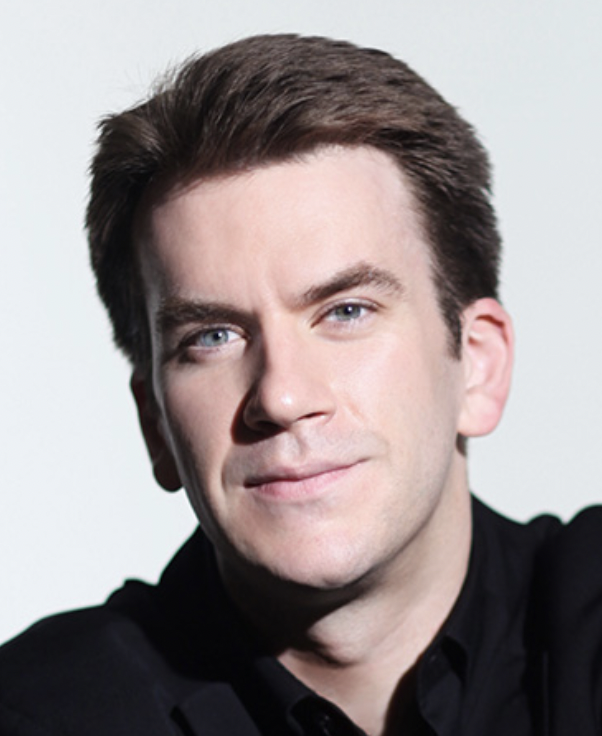|
Symphony
FROM THE NEW WORLD TO THE OLD WORLD
by Peter Lert
Saturday, June 14, 2025
Chamber
MC2 DUO RECITAL CLOSES 222'S SEASON
by Terry McNeill
Saturday, June 14, 2025
Choral and Vocal
CANTIAMO SONOMA'S LUSCIOUS A CAPELLA SINGING IN SEASON ENDING CONCERT
by Pamela Hicks Gailey
Sunday, June 8, 2025
Symphony
SRS SEASON ENDS WITH RESOUNDING TA-TA-TA-BANG
by Terry McNeill
Sunday, June 1, 2025
Symphony
YOUTHFUL VIRTUOSITY ON DISPLAY AT USO'S MAY CONCERTS
by Peter Lert
Saturday, May 17, 2025
Symphony
MYSTICAL PLANETS AND LIVELY GERSHWIN ORTIZ AT FINAL SRS CONCERT
by Peter Lert
Sunday, May 4, 2025
Symphony
VSO'S CONCERT MUSIC OF TIME, MUSIC OF PLACE
by Peter Lert
Sunday, April 27, 2025
VOCAL ELEGANCE AND FIRE AT THE 222'S RECITAL APRIL 26
by Pamela Hicks Gailey
Saturday, April 26, 2025
CANTIAMO SONOMA SINGS AN INSPIRED GOOD FRIDAY MOZART REQUIEM CONCERT
by Pamela Hicks Gailey
Friday, April 18, 2025
DRAMATIC SHOSTAKOVICH SYMPHONY CLOSES PHILHARMONIC'S 25TH SEASON
by Terry McNeill
Sunday, April 13, 2025
|
 |
 Cellist Edward Aaron |
ARRON-PARK DUO IN CAPTIVATING OAKMONT RECITAL
by Terry McNeill
Thursday, March 9, 2023
The chance of having two virtuoso cello recitals in the North Bay in less than 30 days was not good. The sensational Steven Isserliss Napa recital Feb. 14 simply couldn’t be bettered, but Edward Arron’s Music at Oakmont recital March 9 came close. Very close.
With pianist Jeewon Park Mr. Arron made his third appearance on the Berger Auditorium stage in a program of mostly familiar music that was happily received by the largest MAO audience in recent memory.
Schumann’s lovely Adagio and Allegro (Op. 70), often heard with the French horn, was played with wide vibrato in Adagio that favored the hall’s non reverberant acoustics. Arpeggiated chords in the piano part were juxtaposed with Mr. Aaron’s aggressive phrasing and stylish ritards. Cello tone throughout the afternoon was a little dry in the top range, but always rich and warm at the bottom, and the cellist judiciously took some notes with Portamento. Old fashioned perhaps, but interpretatively effective.
Played from score, Arvo Pärt’s 1977 Fratres (“Brothers”) was a splendid 14 minutes of captivating sound, with countless variations of a choral theme below the cello line and a minimalist structure that contained cello playing of high harmonics, fast repeated bow strokes and demanding forte bottom piano notes. Here Mr. Arron’s control of pianissimo and the long emotional line were admirable. There were echoes of Glass’ early music, but only a little. Pärt’s music is an individual voice, and the duo provided a definitive performance.
Finishing the first half was Schubert’s A Minor Arpeggione Sonata, played over 25 minutes with judicious tempos, accurate intonation and colorful tone. The interpretation was at times plaintive and at times sunny, and both musicians superbly built small transitions, especially the deft one from the Adagio to the Allegretto. The simple theme of the finale was made more piquant by Ms. Park’s piano inner voices. The playing had the ample charm and impeccable taste.
Drama of a difference sort was heard in concert’s finale, Beethoven’s middle period A Major Sonata, Op. 69. Mr. Arron’s erudite spoken introductions described the work as having an equal role for both instruments, and in the opening Allegro a happy musical combination unfolded. Mr. Park’s playing at times covered the cello part, helped along by generous damper pedal in fast runs.
Raucous rhythmic playing characterized the Scherzo, but the score needs it, and the contrast with the short lyrical Adagio cantabile was stark. The transition to the finale was seamless and the powerful movement was performed with elan and potent hammering repetitions. Sound in the modulations were emphasized, and though too much juice in the playing of this masterful Allegro can run the music off the rails, it never did. A standing ovation ensued and for an encore the cellist announced that early afternoon was perfectly fine for dessert, so Mendelssohn’s deliciously lyrical Song without Words for Cello (Op. 109) was offered.
Coincidentally the same work was played by Ms. Isserlis for his Napa recital encore, and Mr. Arron’s interpretation was in every way equal with chaste phrasing and luminous sound.
|

